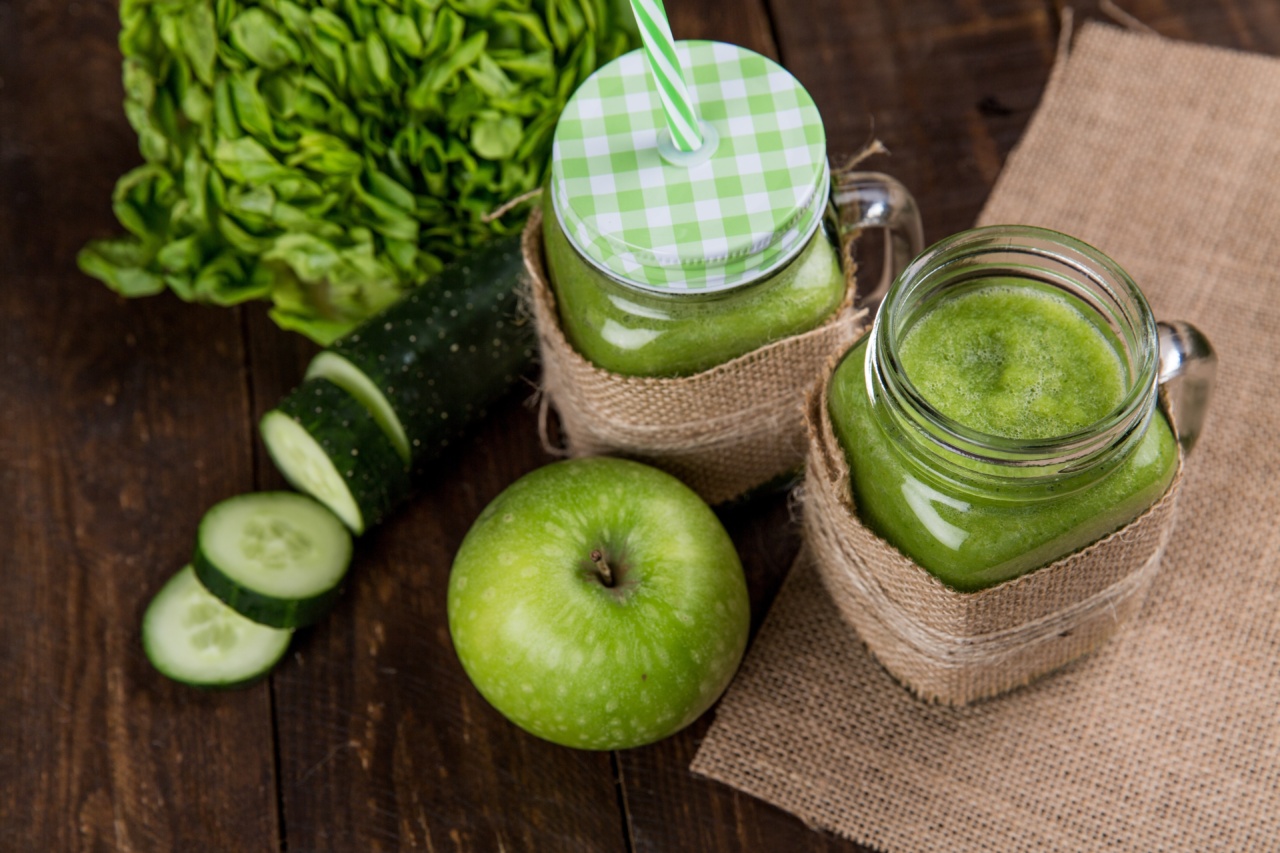Our liver and arteries play a crucial role in maintaining our overall health. The liver helps in filtering toxins from our blood, while the arteries are responsible for carrying oxygen-rich blood to different parts of our body.
Given their vital functions, it is essential to keep both the liver and arteries healthy and functioning optimally.
Importance of Liver Detoxification
The liver is the largest internal organ in our body and plays a vital role in detoxifying harmful substances. It helps in metabolizing medications, converting nutrients into useful forms, and eliminating waste products.
However, due to poor dietary choices, exposure to environmental toxins, excessive alcohol consumption, and various other factors, our liver can become overloaded and may not function properly.
A liver detoxification is an excellent way to support the liver’s natural cleansing abilities and ensure its optimal functioning. It helps remove accumulated toxins, promotes the growth of healthy liver cells, and enhances overall liver health.
Signs of Liver Dysfunction
Before embarking on a liver detox, it is crucial to understand the signs and symptoms of liver dysfunction. Some common signs include:.
- Constant fatigue and tiredness
- Jaundice – yellowing of the skin and eyes
- Persistent abdominal pain and bloating
- Dark urine and pale stools
- Unexplained weight loss
- Loss of appetite
- Digestive issues such as nausea and vomiting
If you experience any of these symptoms, it is essential to consult your healthcare provider for a proper evaluation. They can guide you in determining the best approach for your liver detoxification.
Healthy Habits for Liver Detoxification
While there are numerous liver detox programs available, incorporating healthy habits into your daily routine can also provide significant benefits. Here are some effective ways to support your liver’s detoxification processes:.
1. Hydrate with Water and Herbal Teas
Staying hydrated is vital for optimal liver function. Water helps in flushing out toxins and waste products from the body.
Additionally, consuming liver-supportive herbal teas like dandelion root tea, milk thistle tea, and green tea can provide added benefits.
2. Include Liver-Friendly Foods in Your Diet
Your diet plays a crucial role in liver health. Include foods like leafy greens, cruciferous vegetables, garlic, turmeric, and citrus fruits in your daily meals. These foods contain essential nutrients and antioxidants that support liver detoxification.
3. Cut Back on Alcohol and Processed Foods
Excessive alcohol consumption can cause significant damage to the liver. Limit your alcohol intake and avoid highly processed and sugary foods that can burden the liver.
Opt for whole, unprocessed foods to support your liver’s detoxification process.
4. Stay Active
Regular exercise not only benefits your cardiovascular health but also supports liver detoxification. Physical activity helps improve blood circulation, which enables the liver to efficiently filter and eliminate toxins.
5. Practice Stress Reduction Techniques
Chronic stress can have a detrimental effect on liver health. Incorporate stress reduction techniques like meditation, deep breathing exercises, and yoga into your daily routine to support liver function.
6. Get Sufficient Sleep
Inadequate sleep can impair liver function and hinder detoxification processes. Aim for 7-8 hours of quality sleep to give your liver ample time to regenerate and detoxify.
7. Limit Exposure to Environmental Toxins
Avoid exposure to household chemicals, pesticides, and other environmental toxins as much as possible. Use natural cleaning and personal care products to minimize the toxic load on your liver.
8. Seek Professional Guidance
If you decide to embark on a specific liver detox program, it is advisable to consult a healthcare professional or a registered dietitian. They can guide you in choosing the right program and ensure it is safe and effective for your individual needs.
Arterial Health and Detoxification
In addition to liver detoxification, it is vital to pay attention to the health of our arteries. Arteries are blood vessels that carry oxygen-rich blood from the heart to various parts of the body.
Over time, arteries can become clogged and narrowed due to the build-up of plaque, leading to various cardiovascular issues.
Importance of Arterial Detoxification
Arterial detoxification helps to reduce plaque build-up, improve blood flow, and support overall cardiovascular health.
By adopting healthy lifestyle practices and following a nutritious diet, you can promote arterial detoxification and reduce the risk of cardiovascular diseases.
Healthy Habits for Arterial Detoxification
1. Consume Heart-Healthy Foods
A heart-healthy diet is essential for arterial detoxification. Include foods that are rich in fiber, omega-3 fatty acids, and antioxidants. Some examples include fatty fish, nuts, seeds, whole grains, berries, and leafy greens.
2. Reduce Salt and Processed Foods
Excessive salt intake can contribute to high blood pressure, which is a risk factor for arterial disease. Limit your sodium intake and avoid processed foods that are often high in salt and unhealthy fats.
3. Quit Smoking
Smoking significantly damages the arteries and increases the risk of various cardiovascular conditions. Quitting smoking is one of the most crucial steps to support arterial detoxification and improve overall cardiovascular health.
4. Maintain a Healthy Weight
Being overweight or obese puts additional stress on your arteries and heart. Focus on maintaining a healthy weight through regular exercise and a balanced diet to promote arterial detoxification.
5. Exercise Regularly
Engaging in regular physical activity helps improve blood flow, strengthen the heart, and promote arterial health. Aim for at least 150 minutes of moderate aerobic exercise per week, along with strength training exercises.
6. Control Stress Levels
Chronic stress can contribute to arterial damage. Practice stress management techniques such as meditation, deep breathing, and engaging in activities that bring joy and relaxation.
7. Monitor Blood Pressure and Cholesterol Levels
Regularly check your blood pressure and cholesterol levels to ensure they are within a healthy range. High blood pressure and elevated cholesterol levels are significant risk factors for arterial disease.
8. Get Sufficient Sleep
Quality sleep is essential for overall health, including arterial detoxification. Aim for consistent and restful sleep of 7-8 hours per night.
By following these healthy habits for liver and arterial detoxification, you can improve the health of these vital organs and enhance your overall well-being.
Remember to consult a healthcare professional before making any significant changes to your diet or lifestyle.





























